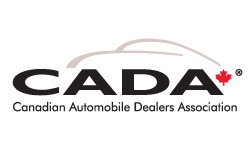As people become increasingly concerned with climate change, we know that they look toward their everyday activities and evaluate what they can do to contribute towards a greener future. For some, this means a desire to make the switch to an electric vehicle and it is something that is growing increasingly popular in our province.
While EV sales have steadily increased throughout Canada, there is no question that BC has assumed a leadership position. Not only does the province have a history of being environmentally focused, but it’s providing opportunities to make the change to greener transportation options easier. With the continued success of CleanBC Go Electric and the SCRAP-IT® Program, along with important investments in vehicle charging stations, many British Columbians are finding that switching to a full or plug-in hybrid EV is not only possible – but an attractive option.
Last year, the CleanBC Go Electric Rebate Program paid out rebates for 8,619 units in 2020. EV sales in BC have been increasing at an exponential level and it is – in part – thanks to the partnership between the auto sector and government in making EV’s more affordable for consumers.
According to a recent study by J.D. Power, among the early adopters who own an EV, 82% say they will definitely consider purchasing an EV in the future. This study suggests further that the trend to switch to EV’s is not going away anytime soon.
The inaugural study was on overall EV ownership, to measure electric vehicle owner satisfaction. The study was done on a 1,000-point scale in premium and mass market segments, including seven factors: accuracy of stated battery range; availability of public charging stations; battery range; cost of ownership; driving enjoyment; ease of charging at home; and vehicle quality and reliability.
The study found that 95% of EV owners whose satisfaction level exceeded a score of 900 say they will purchase another EV in the future. And of those nearly two-thirds of these owners say they definitely will purchase from the same brand. But as satisfaction declined, less consumers were likely to purchase the same brand again.
As you might expect – as it is a common fear for many looking to make the switch – range anxiety still remains as one of the top concerns amongst EV consumers. Though most owners will drive much less than the battery’s range for their shopping trip or commute to work, it is all about peace of mind. Consumers want to know that they have more than enough battery life, in case they get into a sticky situation.
Building off of range anxiety, the second largest issue that contributes to consumer satisfaction is public charging infrastructure. The study – which is based out of the United States – indicates that satisfaction is highest in the West, but it still only comes in at 616 points. The BC government continues to be dedicated to increasing public charging stations, so I am confident if the study were to have included data on BC EV ownership experience, we would have seen fairly high satisfaction!
As more and more consumers make the switch to EV’s, studies like this one remain increasingly important. They will help manufacturers make the necessary improvements to ensure higher customer satisfaction with the switch to EV’s and contribute to a cleaner future.
Blair Qualey is President and CEO of the New Car Dealers Association of BC. You can email him at [email protected].
PS Congratulations to BC Parks and ICBC for celebrating their four-year anniversary milestone with over 200,000 park themed license plates sold. Proceeds from the sale & renewals of BC Parks plates are re-invested back into provincial parks. Learn more about the program: https://bcparks.ca/licence-plates/









